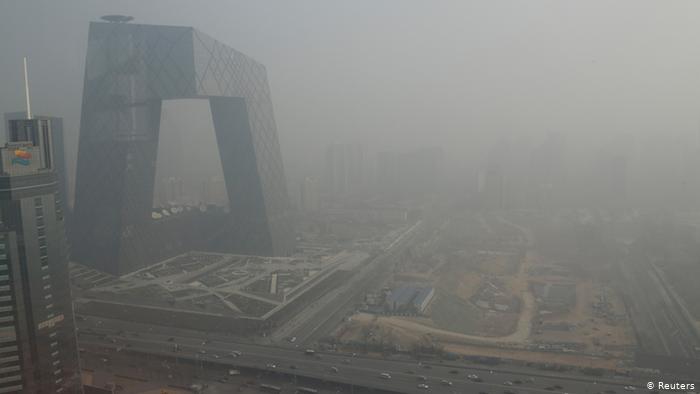China is modernizing at breakneck pace. Slums and bicycles have given way to skyscrapers and avenues clogged with cars. China’s growing economy is improving the lives of its people.
But this comes with negative side effects as well. One of the nation’s leading public health problems is air pollution, which kills over a million Chinese every year.
The recent dust storm in Beijing was a widely reported case of air pollution. Its root cause was the expansion of agriculture in western China, similar to America’s Dust Bowl in the 1930s.
Overall, cars and trucks have become some of the worst polluters in Chinese cities. Factories and coal plants are usually located on the edge of population centers.
They release their smoke out of stacks a hundred feet tall. Even though they release carbon dioxide, they have a smaller effect on the air quality of the cities.
But cars pollute at ground level right in the middle of town.
A new paper from the American Geophysical Union reports that a solution lies in electric cars. According to the report, large-scale use of battery-powered electric vehicles could solve the problem.
They based findings on a number of simulations during Jan. 2013. During this month, heavy smog swallowed up China’s east coast. It hospitalized millions and killed 32,000.
The headquarters of China Central Television through the smog on Jan. 14, 2013.
A Solution?
Dr. Jordan Schnell and other scientists created various models under the same weather events. However, he varied the number of electric cars.
They also adjusted the models to see how they would be affected by coal power or renewable power. What they found was that electric buses and trucks would have cleared up the air even if they drew their power from coal.
Electric cars have the potential to cut down on greenhouse emissions. The study estimated some 500 fewer deaths.
The news was not all ideal though. In the model, heavy vehicles led to more carbon dioxide pollution, although they did produce less pollution for human lungs.
Electric cars had a very small effect overall: a reduction of CO2 emissions but only meager impact on air pollution. They estimated that electric cars would have killed more people in 2010, because more power would have come from coal.
While electric cars gain popularity and may be good for China in the future, the case is not yet clear.
Ultimately, the best way to clear the air is to wean off of fossil fuels in general, whether to power cars or the power grid. China is currently walking this path, so Schnell’s middling results are not overly pessimistic.
Maps showing the areas affected by heavy air pollution, including small particulates (left) and Nitrogen Dioxide (right).
What Lies Ahead
On that note, we end with a lesson from the West’s history of industrialization. In December of 1952, a so-called “pea souper” engulfed London.
These were common enough that they had a cheeky layman name. Over the course of five days, 12,000 people died of poisonous smog that reduced visibility to less than a yard.
The city’s undertakers ran out of coffins. This was by far the worst pea souper to hit London in the city’s history, but it was not a flash in the pan.
The tragedy was common occurrence in Europe and America throughout the 20th century.

New York City on Thanksgiving Day, 1966. The United States' Clean Air Act had been in effect for less than three years.
I bring this up to demonstrate that China’s situation is not unique in history. Therefore there is no need to see only a bleak future as China’s modernization continues.
The air in China today is no worse than it was in New York or Los Angeles as recently as fifty years ago.
Dr. Schnell’s article does underscore one key difference though. Although electric cars may not be the panacea to China’s smog, they at least exist. Their existence alone is an advantage the West lacked in the 1960s.
The same can be said for a variety of renewable energy sources that have come into being within even my own parents’ lifetimes.
China has the benefit of industrializing with technology that we lacked in our industrial infancy. Today's technology can only help put them out ahead in the long run.





0 Comments